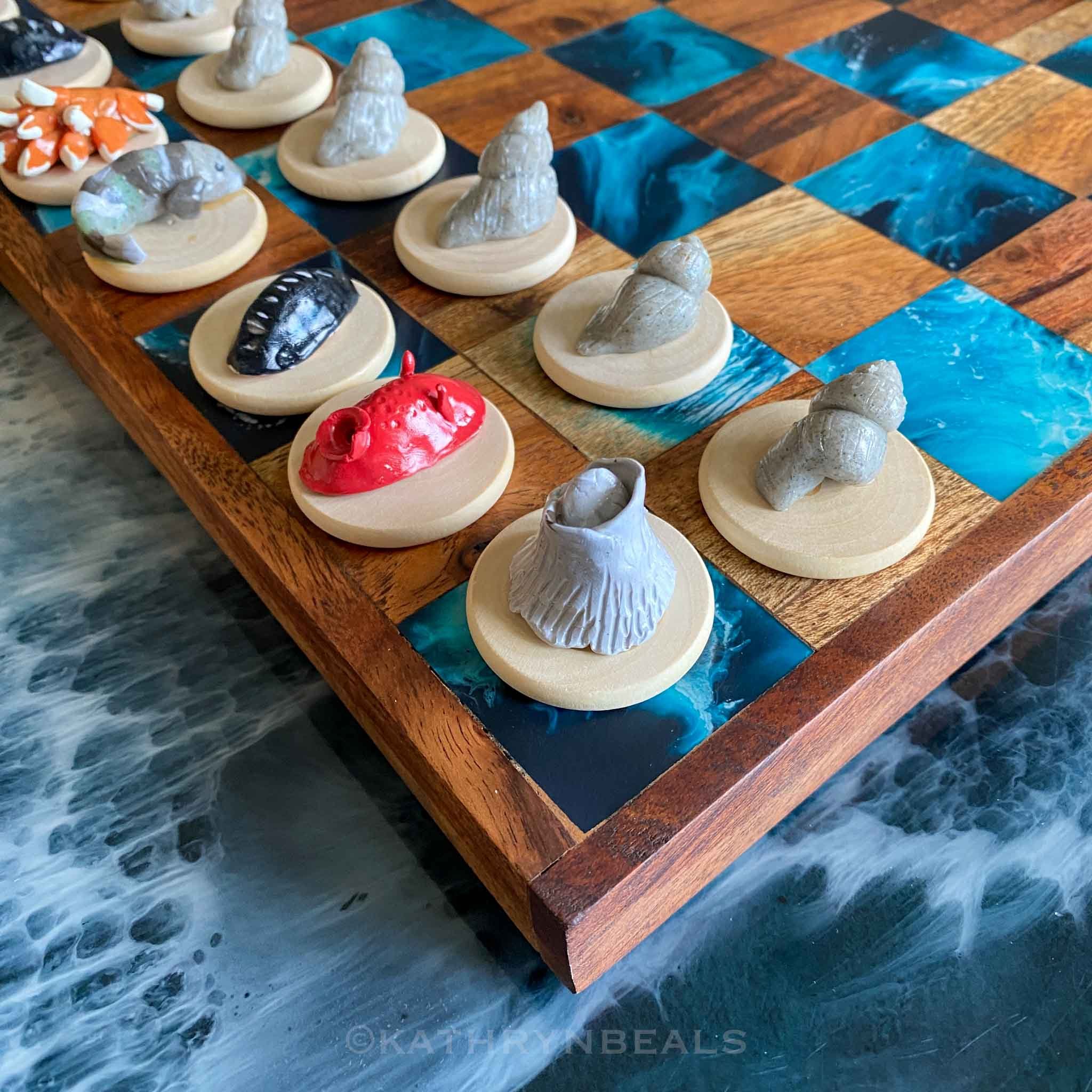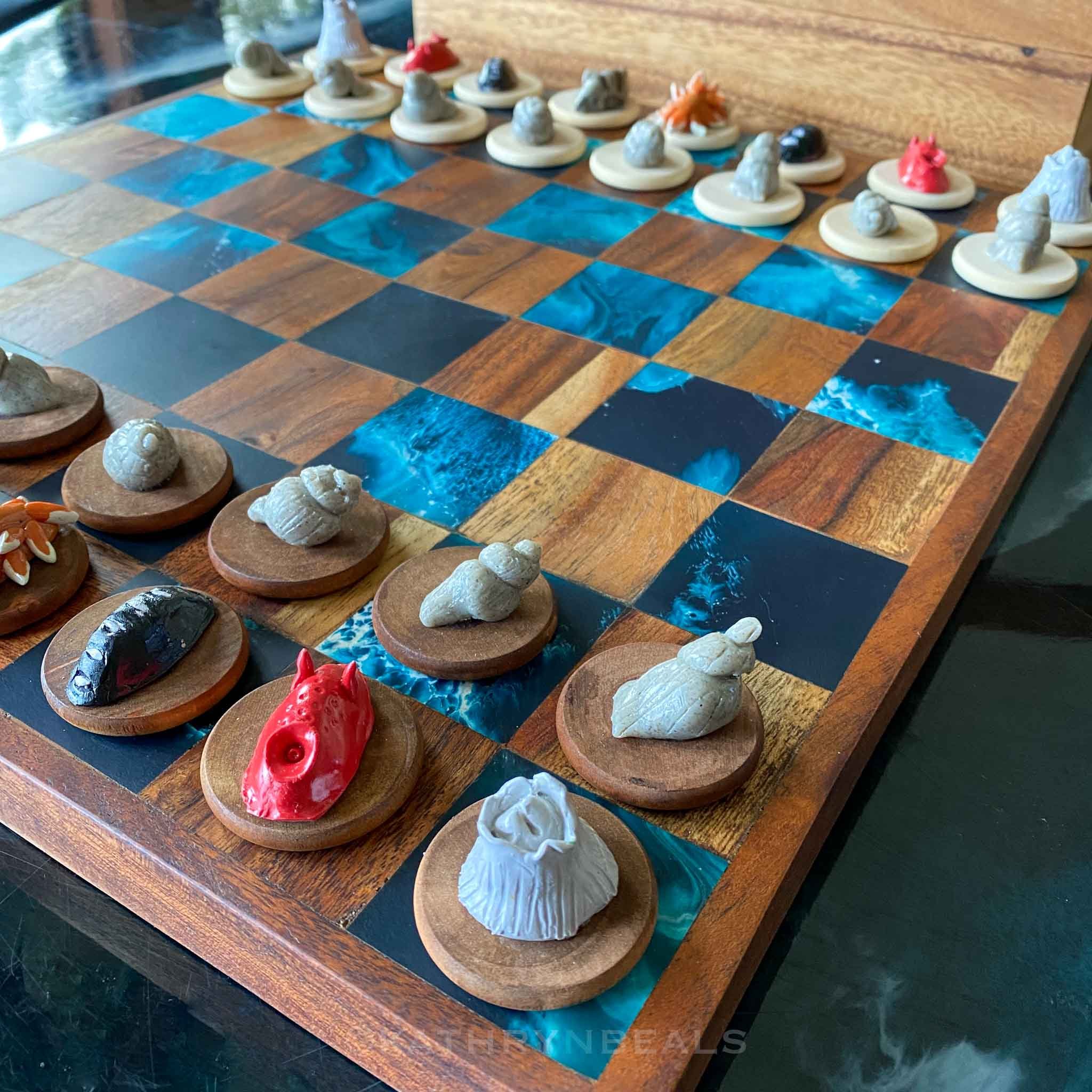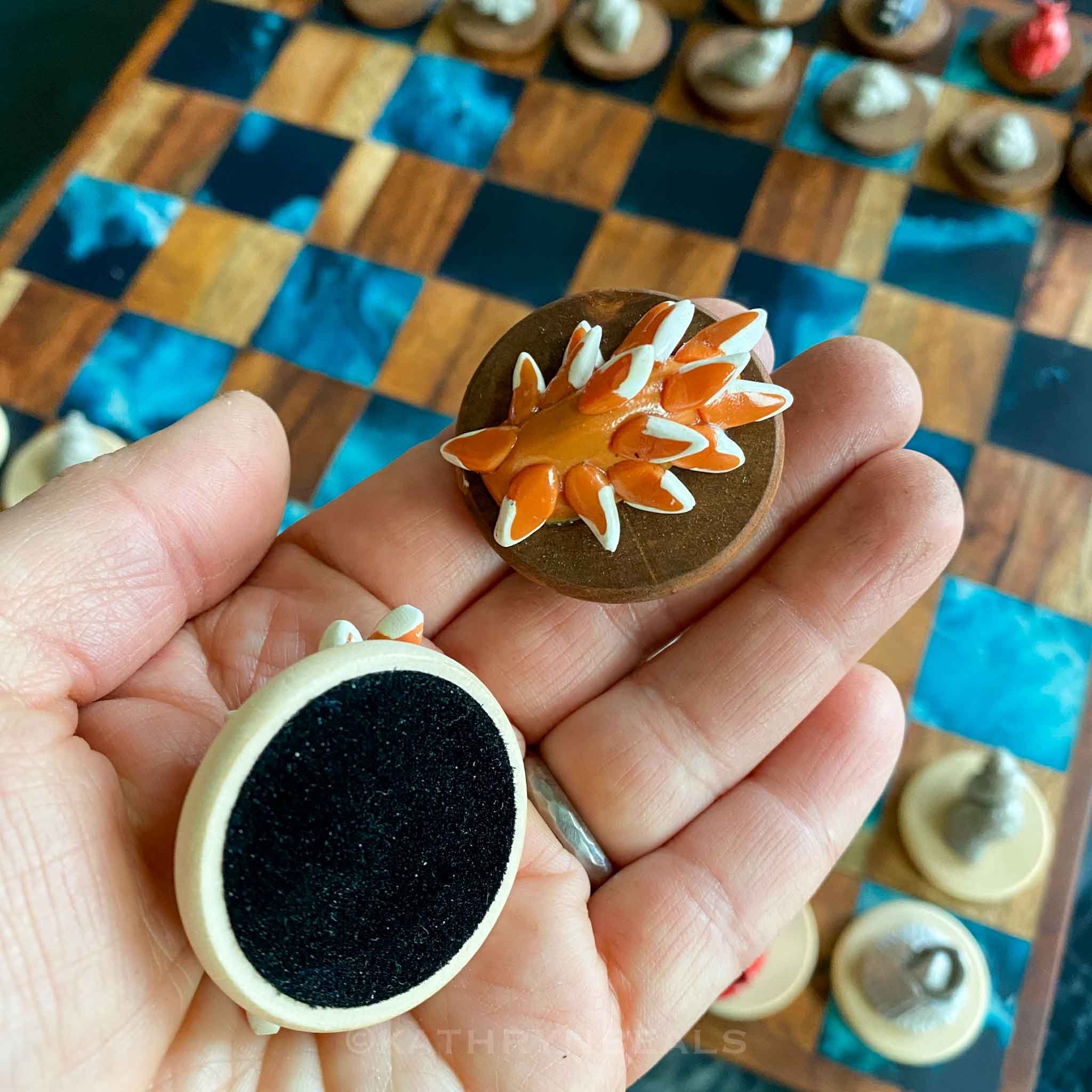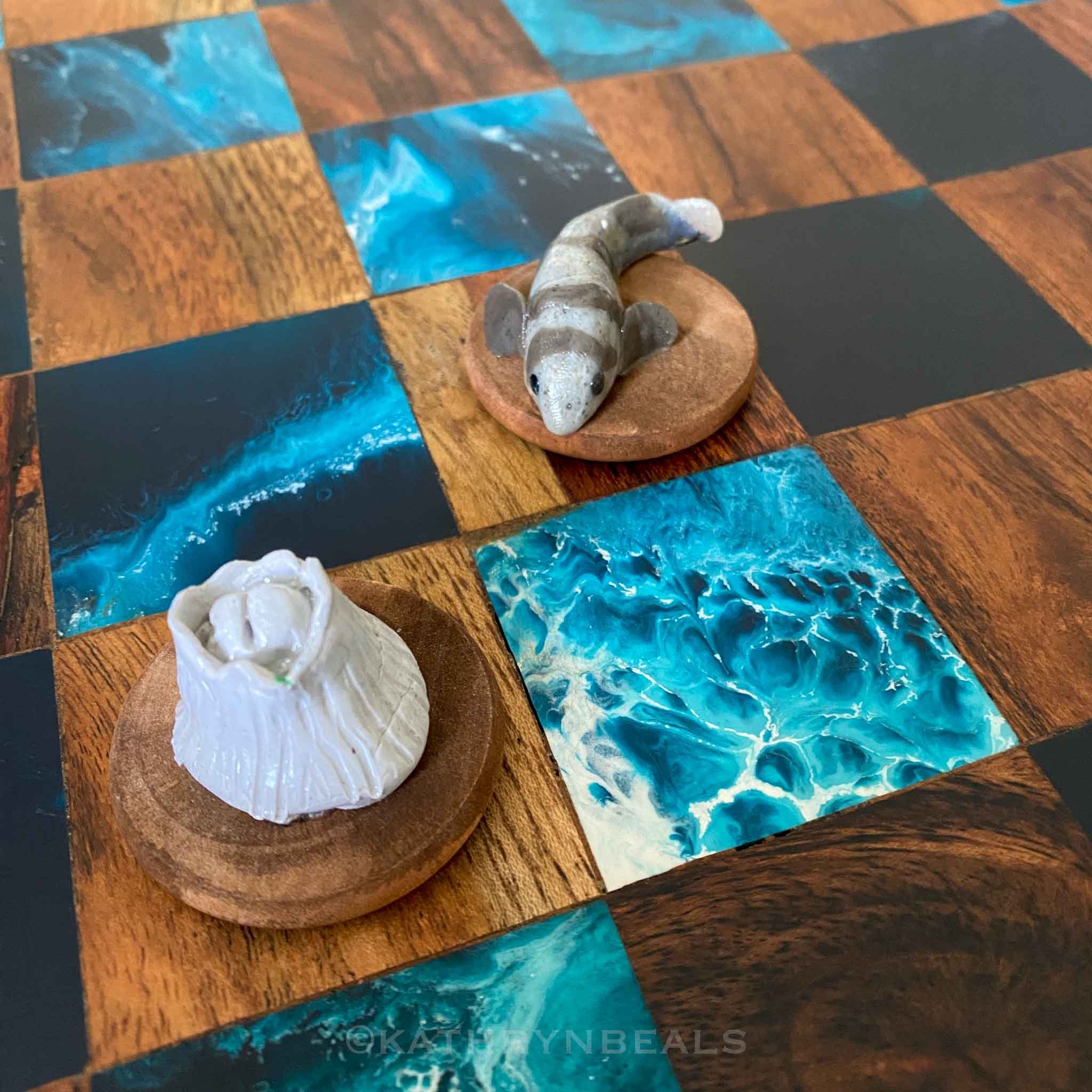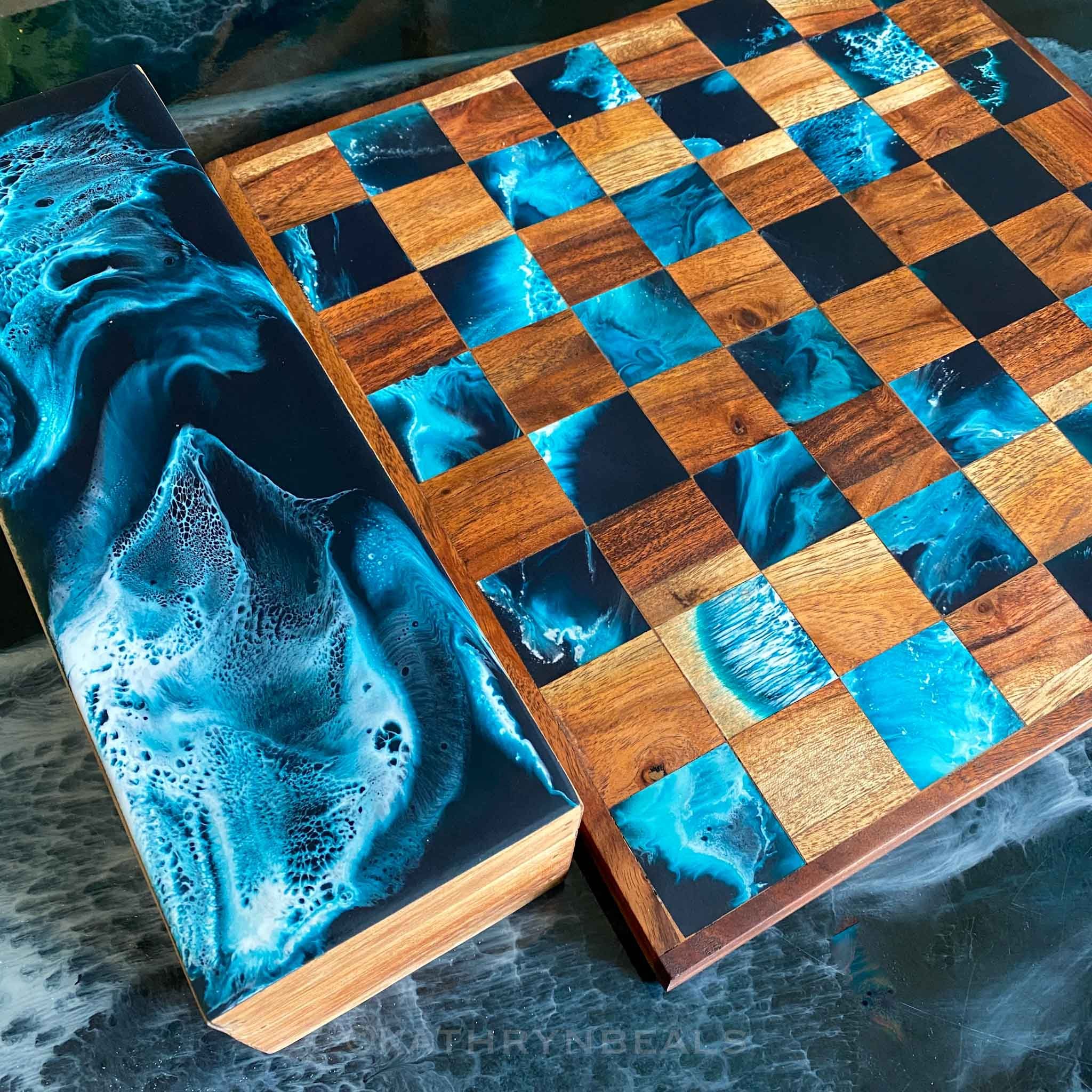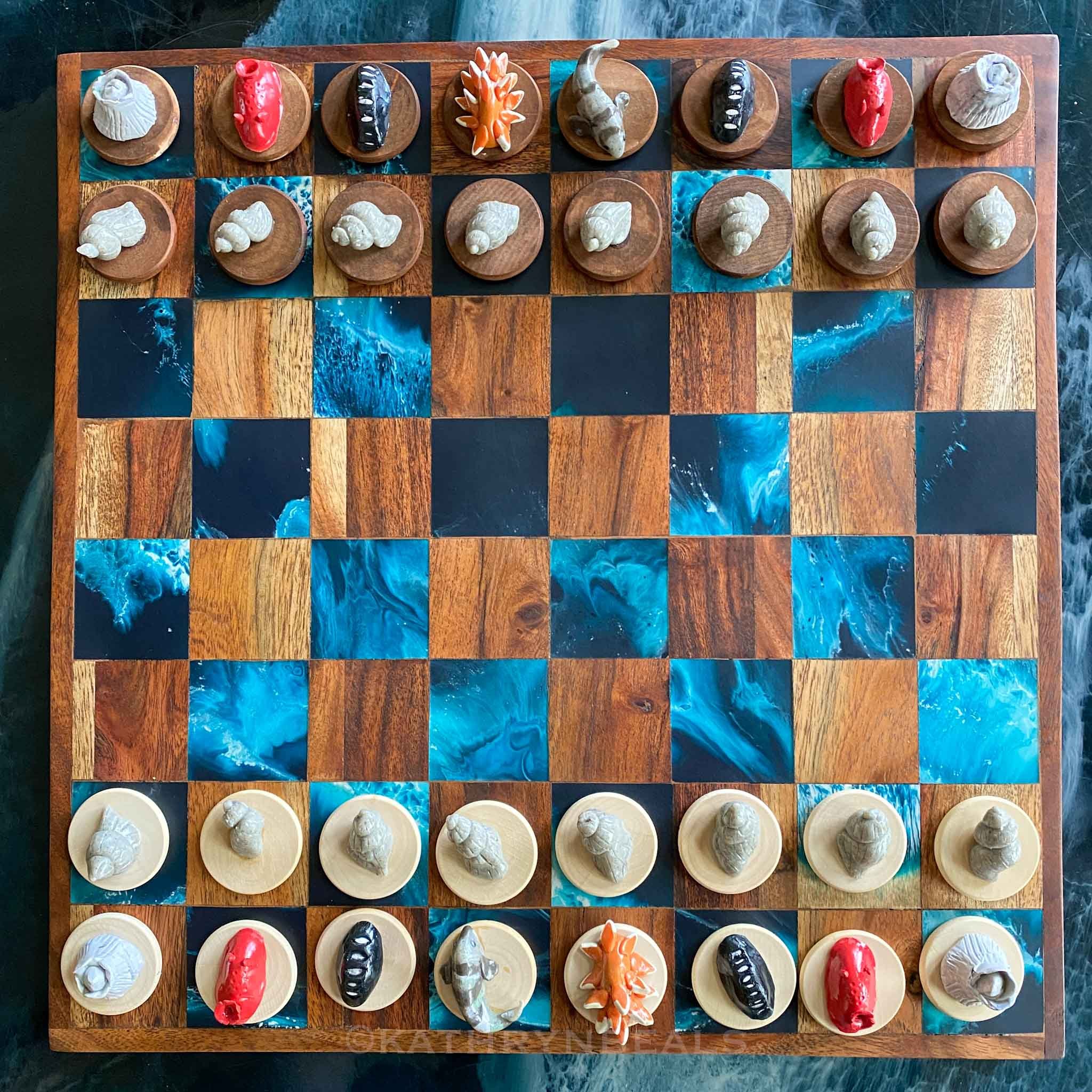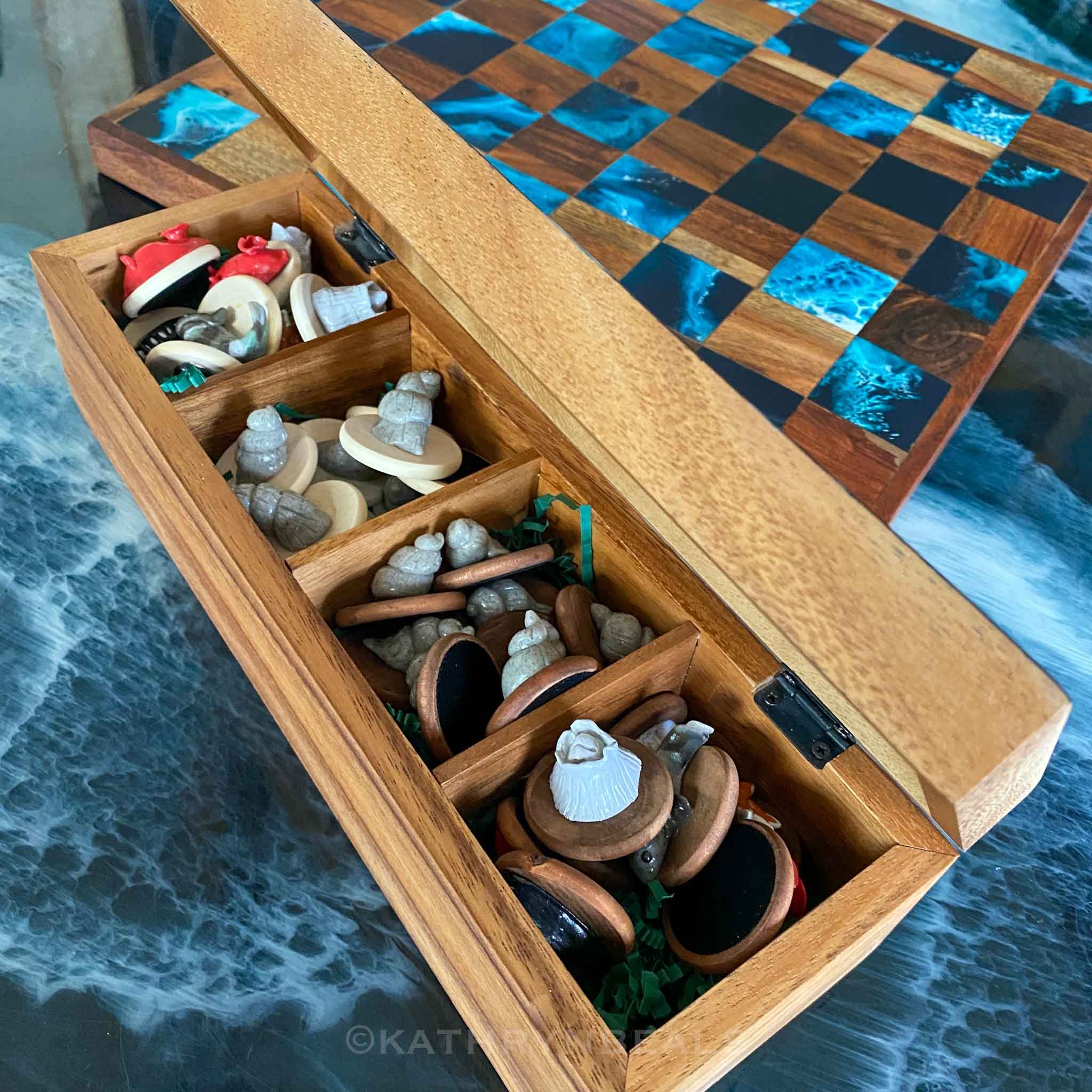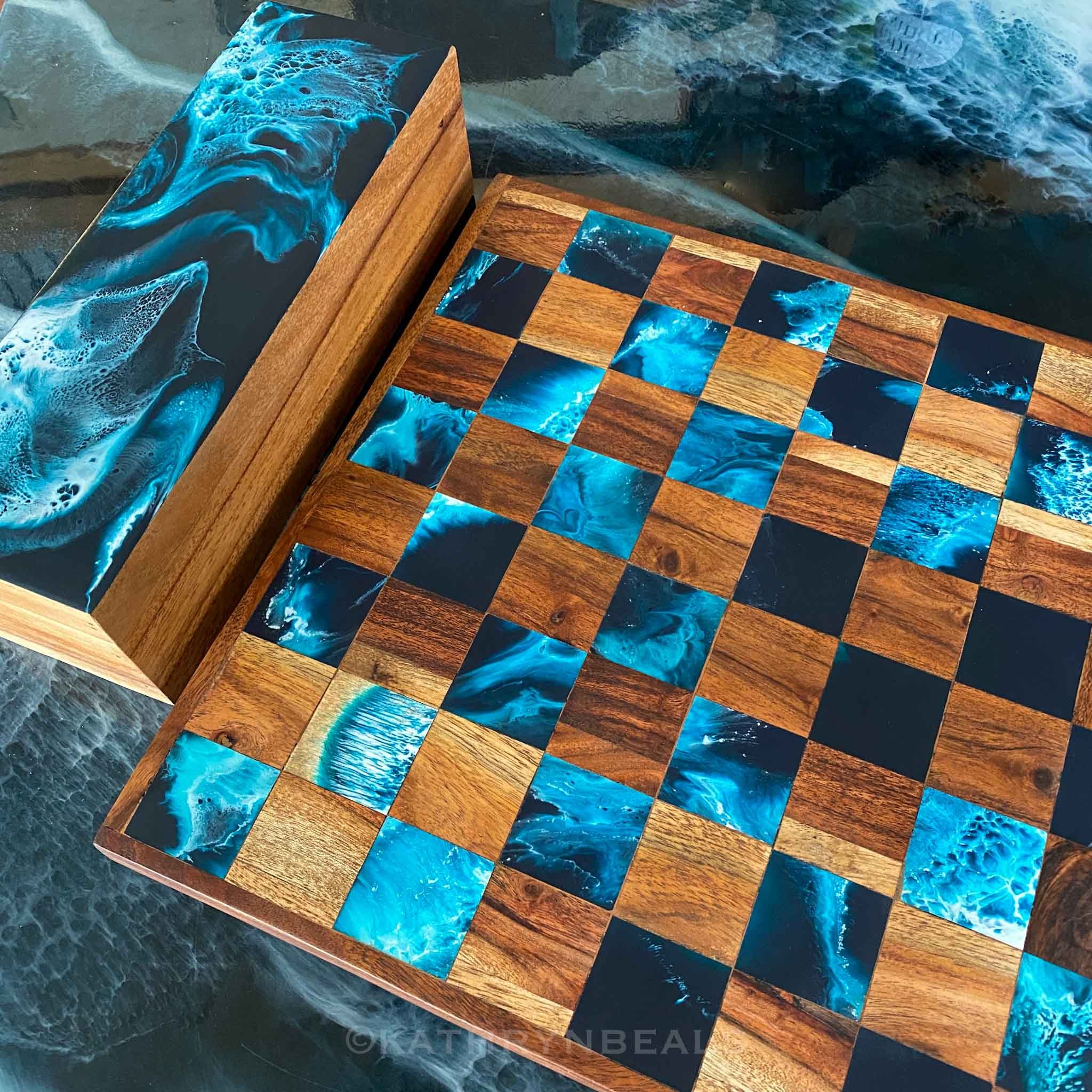Preview the Tidepool Chess Board for the MERS 2023 auction
A collaboration between BC Tidepool Girl and auntie Kathryn. The MERS auction will launch April 21, 2023 on their website.
Tidepool Chess Set
Keltie has created a set of 32 chess pieces featuring BC tidepool species in polymer clay. Each piece has a wooden backing with a velvet lining. Keltie’s handmade pieces include Dire Whelks, Acorn Barnacles, Red Nudibranchs, Black Leather Chitons, Sculpins and Golden Dironas. A reference card is included with descriptions of each piece.
Kathryn has made a matching acacia and resin ocean board, using reclaimed pieces of acacia wood and resin from her paintings and functional art. The board measures approximately 15” wide and has a black velvet backing. A matching four compartment resin and acacia storage box will keep your pieces safe and sorted when they’re not in play. If you want to keep your pieces out on display, the box can alternatively be used as a tea box.
Learn More about MERS
The Marine Education and Research Society (MERS) is based in Port McNeill, Northern Vancouver Island in the Territory of the Kwakwak’wakw. This is a small organization doing big work; applying their research efforts directly into education and conservation.
Their work began when the number of Humpback Whales off the coast of British Columbia began to increase. Sightings of Humpbacks used to be very rare because so many were killed by whaling. The last whaling station in British Columbia closed in 1967. The MERS team documents who the Humpback Whales are in order to understand habitat use, life histories, feeding strategies, how to reduce threats, and to help people care about the whales as individuals. They are the coordinators of the Canadian Pacific Humpback Collaboration to maintain a province-wide catalogue of Humpback Whales.
MERS anticipated that the increased overlap between Humpback Whales and human activity would lead to increased risk of entanglement in fishing gear and collision with boats. The team has put great effort has gone into researching these threats, inputting into government policy, educating boaters, and providing Marine Mammal Naturalist Courses and workshops for First Nations and Fisheries Officers. They also have a role in whale disentanglement as directed by Fisheries and Oceans Canada.
They are also very directed at raising awareness of the biodiversity off the coast of British Columbia, the plight of species that are often hidden in the dark, plankton-rich waters and why it is important. This includes Sunflower Stars, the world’s largest species of sea star at up to 1 metre across. These giant sea stars were very heavily impacted by Sea Star Wasting Disease which began in 2013. Their loss from the ecosystem impacts the health of kelp forests because Sunflower Stars eat Green Urchins which graze on kelp. The kelp forests are essential as habitat and food, and for oxygen production and carbon dioxide buffering. To date, there isn’t scientific consensus about which bacteria or virus is causing the disease. What is consistent is that changing environmental conditions appear to allow the pathogen (be it bacteria or viruses) to have a greater impact.

